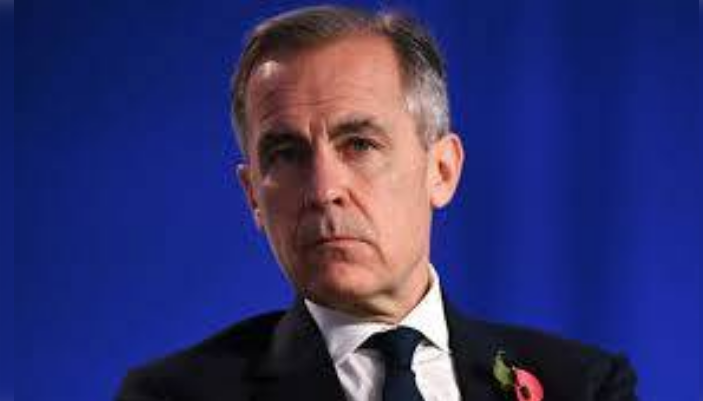Ottawa (Web Desk): Mark Carney was decisively elected as the new leader of Canada's Liberal Party on Sunday, with the former central banker quickly taking a bold stance against threats from US President Donald Trump.
Carney, 59, received an overwhelming 85.9% of the votes in the leadership election, signaling a strong mandate to take the reins from Prime Minister Justin Trudeau, who is set to step down.
However, Carney’s tenure could be brief, as Canada is required to hold elections by October, though he might call a snap election sooner if he feels the political moment is right. Recent polls indicate that the opposition Conservatives currently have a slight edge.
In his victory speech, Carney made it clear that the United States, under Trump's leadership, was attempting to exert control over Canada, an effort he described as a direct threat to the country’s sovereignty.
"The Americans want our resources, our water, our land, our country," Carney told a cheering crowd in Ottawa, after the results were announced.
He further criticized Trump, saying, "Trump is attacking Canadian workers, families, and businesses. We cannot let him succeed."
Carney’s main rival in the leadership contest, Chrystia Freeland, who previously served as Trudeau's deputy prime minister, was soundly defeated.
Freeland, who has held several significant positions within the Liberal government, represented a more traditional choice compared to Carney’s outsider status.
Since entering the race, Carney has consistently framed himself as the best candidate to defend Canada against Trump’s disruptions.
Trump has repeatedly made statements suggesting Canada could become the 51st US state, and his actions on trade and tariffs have caused significant economic uncertainty for Canada, further inflaming tensions.
Trudeau, in his farewell address before Carney’s election, noted, "Canadians face from our neighbor an existential challenge." This threat has helped unite the Liberal Party, with many seeing Trump’s rhetoric as a rallying point.
Lozminda Longkines, a Carney supporter, remarked, "We are so united... We have a common enemy," reflecting the sense of urgency felt within the party.
Carney’s leadership could give the Liberals a renewed sense of purpose, particularly in light of the mounting pressures from Trump’s administration.
He has portrayed himself as uniquely capable of addressing these challenges, citing his leadership during the 2008-2009 financial crisis as well as his role in navigating the economic turmoil following the Brexit vote while serving as Governor of the Bank of England.
A poll from the Angus Reid firm showed that Carney was seen as the best candidate to confront Trump, with 43% of Canadians trusting him to handle the US president compared to 34% for Conservative leader Pierre Poilievre.
Despite his strong credentials in finance and global leadership, Carney has never held elected office, and his lack of experience in politics could be a liability.
The Conservative Party has already begun running attack ads, questioning his political acumen and consistency on key issues. Carney has presented himself as a fresh voice for the Liberal Party, untainted by the controversies that have dogged Trudeau’s leadership, particularly around Canada’s economic performance.
In the coming days, Carney will meet with Governor General Mary Simon, King Charles III’s official representative in Canada, who will officially task him with forming a government.
This moment will mark the beginning of Carney's tenure, but the coming months will likely see a race to the ballot box, where his political experience and ability to unite the country will be put to the test.


